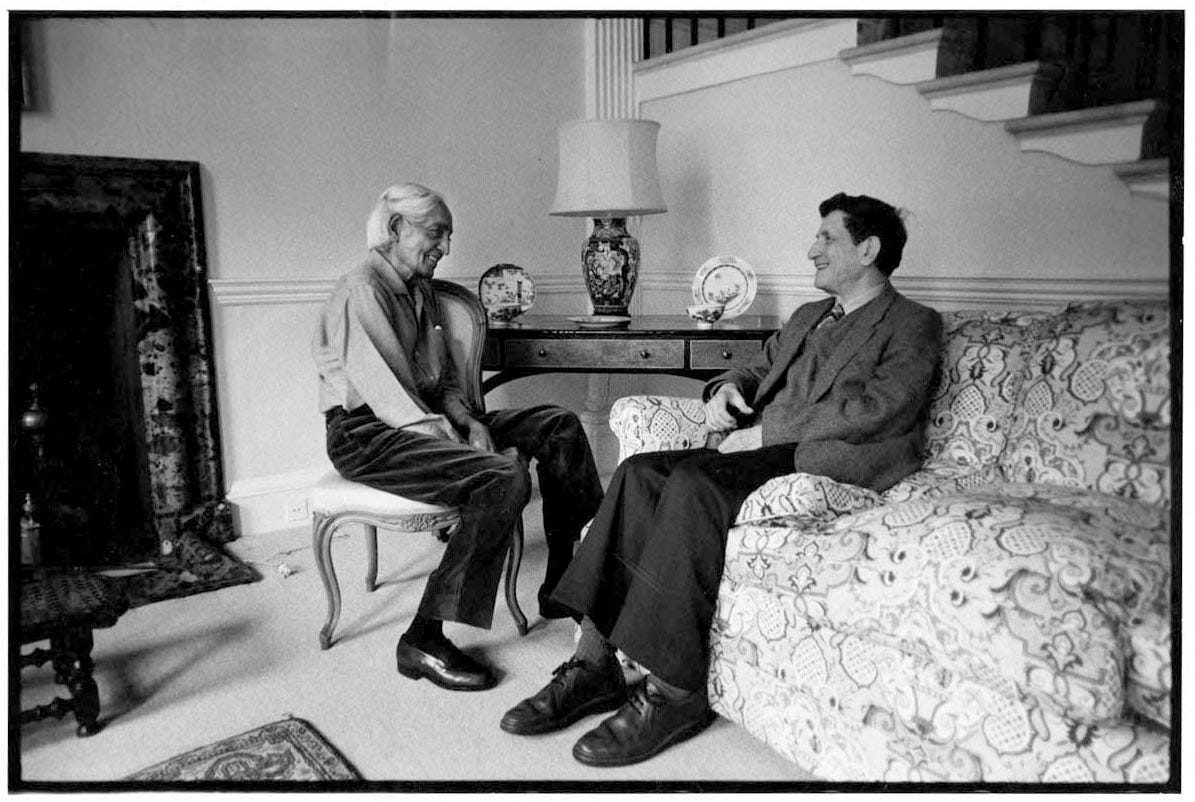Clearly, I’ve spent the last few years finding and reading pretty much anything with “dialogue” in the title, so that’s how I ended up with David Bohm’s On Dialogue over the past few weeks. I honestly cannot say how I ended up there, what clickthrough was happening, or if I was just searching “dialogue” again in Audible. Either way, Bohm’s short tome showed up and the blurb seemed interesting enough, so I grabbed it and gave it a listen. Here I’ll track some thoughts from working through this little book.
First, who is David Bohm? I hadn’t heard of him before, but Bohm was an American physicist who brought some interesting ideas beyond his field of speciality into neuropsychology and the philosophy of mind. Also, he questioned some of the hegemony of reason and technology and promoted—you guessed it—dialogue as a means by which to broaden perspectives and deal with divisions in communities globally. Bohm came to prominence in the 1940s and ‘50s, yet this book on dialogue emerged later in his career in the 1990s, though dialogism was prominent in his public scholarship prior to this publication.

A few fascinating streams emerged in Bohm’s book, and it inspired some thought and critique which I’ll track below. Bohm provides his own definition of dialogue as follows:
I give a meaning to the word ‘dialogue’ that is somewhat different from what is commonly used. The derivations of words often help to suggest a deeper meaning. ‘Dialogue’ comes from the Greek word dialogos. Logos means ‘the word’ or in our case we would think of the ‘meaning of the word.’ And dia means ‘through’ - it doesn’t mean two. A dialogue can be among any number of people, not just two. Even one person can have a sense of dialogue within himself, if the spirit of the dialogue is present. The picture of image that this derivation suggests is of a stream of meaning flowing among and through us and between us. This will make possible a flow of meaning in the whole group, out of which will emerge some new understanding. It’s something new, which may not have been in the starting point at all. It’s something creative. And this shared meaning is the ‘glue’ or ‘cement’ that holds people and societies together.
Source: https://sprott.physics.wisc.edu/Chaos-Complexity/dialogue.pdf
I appreciate the emphasis here on the dia prefix and its not being “two,” though I’m wresting with the implications of this and its relation to “monologue.” The idea of a “stream of meaning” I find to be helpful, as well as the take that dialogues can be amongst any number of people or even internal—we’re used to the common usage of “internal dialogue” anyway. But you also get a sense of Bohm’s writing style, and some of my critique of the abstract and ephemeral quality of what he presents—though I think I can be similarly abstruse and theoretical.
Bohm contrasts dialogue with discussion:
Contrast this with the word ‘discussion’, which has the same root as ‘percussion’ and ‘concussion’. It really means to break things up. It emphasizes the idea of analysis, where there may be many points of view. Discussion is almost like a Ping-Pong game, where people are batting the ideas back and forth and the object of the game is to win or to get points for yourself. Possibly you will take up somebody else’s ideas to beak up your own - you may agree with some and disagree with others - but the basic point is to win the game. That’s frequently the case in a discussion.
Source: https://sprott.physics.wisc.edu/Chaos-Complexity/dialogue.pdf
This reminds me of Nikulin’s monologue or even dialectic, and lots of what I blogged about last fall with regard to relations between dialogue and dialectic. Bohm frames it as follows:
In a dialogue, however, nobody is trying to win. Everybody wins if anybody wins. There is a different sort of spirit to it. In a dialogue, there is no attempt to gain points, or to make your particular view prevail. Rather, whenever any mistake is discovered on the part of anybody, everybody gains. It’s a situation called win-win, in which we are not playing a game against each other but with each other. In a dialogue, everybody wins.
Source: https://sprott.physics.wisc.edu/Chaos-Complexity/dialogue.pdf
I would like to zoom in on this excerpt: “whenever any mistake is discovered on the part of anybody, everybody gains.” One of my thoughts inspired by working through Bohm’s book has to do with the structural and the non-structural in “dialogue.” Even the phrase “to have a dialogue” strikes me as impactful. Bohm seems to talk about dialogue as a formal structure or a protocol here when he says “have a dialogue,” rather than recognizing the linguistic environment we all live in day to day as bristling with unending dialogue.
Bohm also takes up this idea of the “sharing of mind” later in his book. He says, “individual thought is mostly the result of collective thought and of interaction with other people.” This strikes me as related to Vygotsky’s “through others we become ourselves,” or the rumination on consciousness as “knowing with another” from Bakhtin." Further, it reminds me of Neil Mercer et al.’s work around “exploratory talk” and the modes of talking apparent in learning environments.
Overall, it’s helpful to hear Bohm’s thoughts about dialogue from this sort of abstruse perspective, and the abstraction present here helps me temper my own scholarship. I suppose these reflections inspire me to look a little further into the empirical research on dialogue, discourse, conversation and otherwise. Please share your thoughts below.



